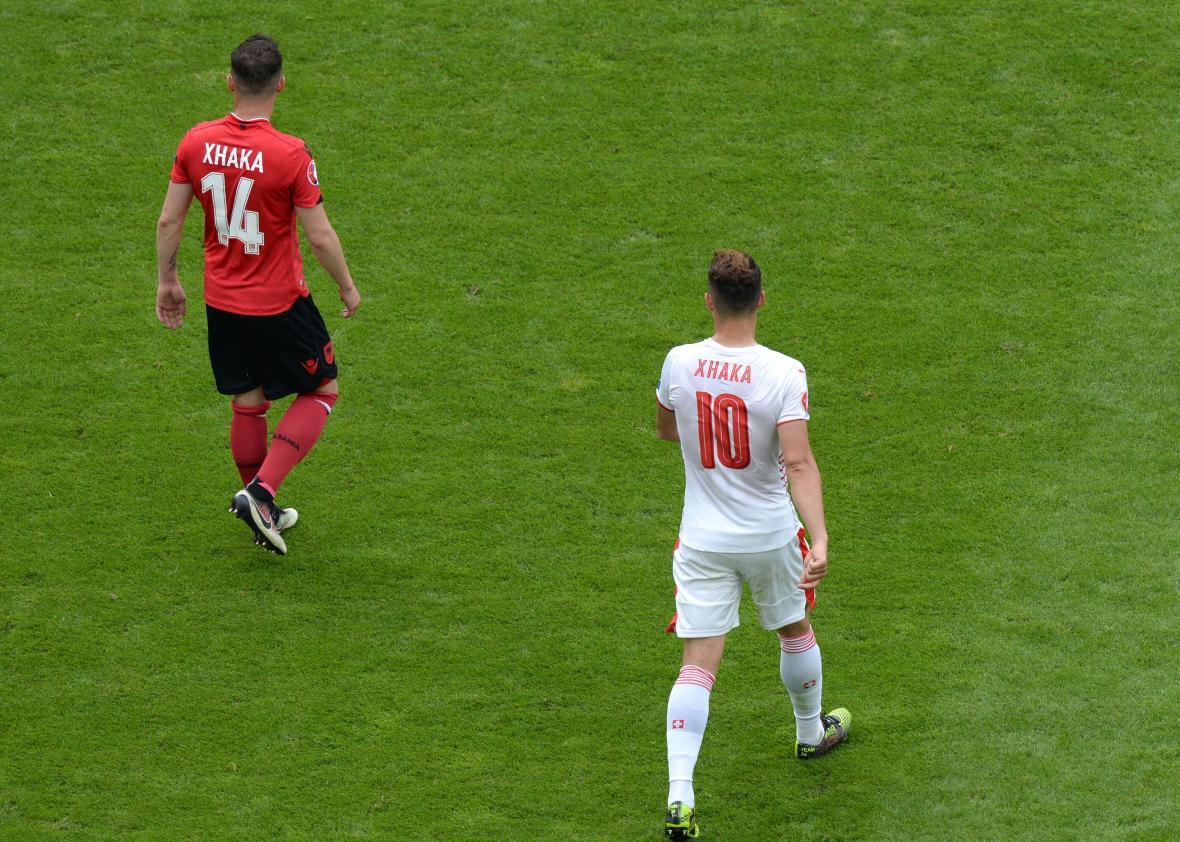One Sunday in June 2000, I biked to The Abbey Pub on the northwest side of Chicago to watch Spain play Slovenia in the UEFA Euro Championship. Back in the day, it was much harder to find ways to watch the Euro Championship in the U.S. The Abbey, an Irish pub, was one of the few places showing the matches. I got there early—the game was to start at 8 a.m.—to have breakfast, but it was already packed with Irishmen clutching their pints, watching a live broadcast of an important game of hurling live from Dublin. Many of them were inebriated, shouting at the gigantic screen. It didn’t look good.
I’ll watch any soccer game anywhere, but I really wanted to see Slovenia play. It was their first (and last, so far) Euro after declaring independence from Yugoslavia in 1991. Their coach, Srečko Katanec, had been an excellent defensive midfielder and one of the pillars of the Yugoslav national team that lost on penalties to Argentina in the 1990 World Cup quarterfinals. In the Slovenians’ first game at the 2000 Euros they faced Yugoslavia, which by this time consisted of only Serbia and Montenegro; though Slovenia took a 3-0 lead and Yugoslavia went down to 10 men, the Slovenians could manage only a 3-3 draw.* I hoped they might do well against Spain, which was at the time still fully committed to mediocrity, or even surprise everyone by progressing beyond the group stage. Which is to say that the match was extremely important to me.
But when I tracked down a waitress to ask if Spain-Slovenia would be shown at The Abbey, she looked at me as though I was insane. I ended up watching the game on a very small TV in a very dark basement, the sound overwhelmed by the stampede of hooting Irishmen above my head. At some point a waitress came down to fetch something, turned on the light and was startled breathless by my unexpected presence. “What are you doing here?” she asked and I sheepishly pointed at the screen where Slovenia was losing 2-1. They did not progress beyond the group stage. And my breakfast was served cold.
On Saturday morning, while watching Switzerland-Albania, I recalled that glorious time when following a Euro Championship was an underground activity. This was another one of those games important not only for tactical oddities, or because Arsenal just bought Granit Xhaka, but also because the vast majority of the players on the pitch are Albanian speakers, and because the Xhaka brothers are facing each other (Granit for Switzerland, Taulant for Albania). Soccer contains histories, personal and massive, and this game features a particularly Balkan story, which I could read in the line-ups.
A few of us from the Balkans remember the Albania ruled by Enver Hoxha, surely in the running for the most outrageous European dictator ever. Take this: In the heyday of his rule, Hoxha would be the only candidate in presidential elections, in which the entire population of Albania would vote for him—the entire population as recorded in the most recent census minus one, that is, as it was beneath the Great Leader to vote for himself. And then, after the fall of the Wall, and the dissolution of Hoxha’s regime, there was a period of what is generously called “transition” built upon a gigantic Ponzi scheme that would eventually clean out up to one third of the population. The imaginary money led to a short, delusional renaissance of Albanian football, which featured the 1978 World Cup winner Mario Kempes arriving to coach KF Lushnja in a town with the population of 30,000. I remember the images of Kempes landing in Albania to be swarmed by adoring fans—it was not unlike seeing, say, Miroslav Klose arriving to coach in Mobile, Alabama. After the economy collapsed, in 1996 or so, boatfuls of destitute Albanians started crossing the Adriatic to get to Italy—a preview of the current refugee crisis.
Meanwhile, on the Swiss side, the Albanian-speaking players are mainly from Kosova, the part of Yugoslavia where the nation’s dissolution essentially commenced in the late 1980s. Valon Behrami’s family found itself in Switzerland in the ’90s, and were to be deported when the local community collected signatures to support them, and they stayed. Xherdan Shaqiri has three passports: Swiss, Albanian, and Kosovar, and is also eligible for a Serbian one, but I don’t think he’s eager to apply; in 1999, Serbia conducted a brutal military campaign against the Albanian population in Kosova, resulting in a wave of refugees spread around Europe.
The expansion of UEFA Euro competition to 24 teams will lower the quality of the soccer played—as was evident in the Switzerland-Albania game. But the expansion is directly related to the changes in Europe in the past quarter-century. If you want to understand all or any of that, you might have to endure watching Romania-Albania, to be played on June 19. I’ll be glued to the TV.
Read more Slate coverage of Euro 2016.
*Correction, June 11, 2016: Due to an editing error, this post originally stated that Slovenia came back from a 3-0 deficit against Yugoslavia in the 2000 European Championship. It was Yugoslavia that came back from the 3-0 deficit.
